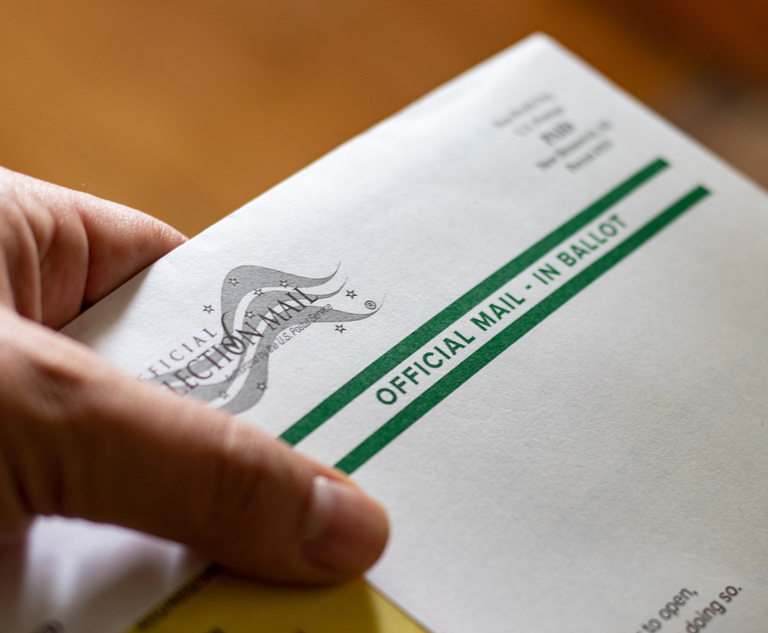
March 15, 2024 | New York Law Journal
Supreme Court's Trend in Ruling in Arbitration Topics Should Have Litigators Reflecting on StrategyThis article touches on several Supreme Court decisions related to the Federal Arbitration Act and the potential impact they have on the trajectory of a litigation and/or strategy of litigators.
By Leslie A. Berkoff
8 minute read

March 15, 2024 | New York Law Journal
So, You Have Been Compelled to Mediation in SDNY and EDNY: What Next?Whether one chooses a private mediator from outside the court system or takes advantage of programs like those available in SDNY and EDNY, every litigator has an obligation to their client to at least consider mediation at each major decision point in litigation.
By Noel L. Hillman
9 minute read

March 15, 2024 | New York Law Journal
Testing Your Arbitration Dispute in a Mock ArbitrationA valuable preparation option for any high-stakes arbitration is the mock arbitration. When done well, the reason it works is that counsel (and client) receives neutral mock arbitrator feedback on every issue that counsel seeks to test.
By David W. Ichel
5 minute read

March 14, 2024 | New York Law Journal
'Philpot v. Independent Journal Review'In 'Philpot v. Independent Journal Review', the Fourth Circuit reversed the district court's findings regarding fair use and copyright registration validity.
By Thomas Kjellberg and Robert W. Clarida
11 minute read

March 14, 2024 | New York Law Journal
Biotech Industry Bankruptcy Cases: 'Zymergen' and 'Humanigen'This issue of the Bankruptcy Update column focuses on the recent biotech industry bankruptcy cases of Zymergen and Humanigen.
By Edward E. Neiger, Marianna Udem and Joo Hee Park
5 minute read

March 13, 2024 | New York Law Journal
Financial Services Industry Group Update: $30M Fine Issued to NY Bank for Misuse of Confidential Information: What Happened?The New York Department of Financial Services imposed a $30 million penalty on the New York branch of a foreign bank. The fine had nothing to do with employment discrimination or wage-and-hour issues—but it was the outcome of an internal transfer of a single New York-based employee to an overseas affiliate, and is a lesson in how financial services clients are at risk of penalties going far beyond those that are normally imposed by employment law regulators.
By Philip M. Berkowitz
6 minute read

March 13, 2024 | New York Law Journal
New York City Relaxing Environmental Review Rules for Housing ConstructionFaced with a severe housing shortage, NYC is exempting the construction of much new housing from the environmental review processes and taking many other steps to encourage such construction throughout the city. Several of these moves will also help the transition away from fossil fuels to renewable energy.
By Michael B. Gerrard
9 minute read

March 12, 2024 | New York Law Journal
Cruel but Not Unusual: The Sentence Recommended for Sam Bankman-FriedJohn S. Martin, former district judge and U.S. attorney for the Southern District of New York, presents his take on the U.S. Probation Department's recommended 100-year sentence for Sam Bankman-Fried.
By John S. Martin
6 minute read

March 12, 2024 | New York Law Journal
The Battle Over Design Patent Obviousness: Will The 'Rosen-Durling' Test Continue To Govern Future Design Patent Obviousness Inquiries?An en banc panel of the Federal Circuit will soon decide whether to amend its long-standing framework for assessing design patent obviousness, known as the 'Rosen-Durling' test. The forthcoming decision in 'LKQ v. GM Global Technology Operations' will be the first en banc decision the Federal Circuit has issued in a design patent case since 2008.
By Catherine Nyarady and Crystal Parker
8 minute read

March 12, 2024 | New York Law Journal
Voting in New YorkWhile most Americans are focused upon trials and court rulings impacting the 2024 presidential election, this article takes a moment to review two significant New York-related developments. In both cases, the goal was to expand voting rights. As of now, one succeeded and one did not.
By Jerry H. Goldfeder
8 minute read
Trending Stories
- 1With a 7-Figure Book Deal and TV Adaptation on the Way, This Dechert Associate Remains Committed to Her Day Job
- 2Northwestern University Pritzker Law School Hit With Reverse Discrimination Lawsuit
- 3Biden Will Be First Lawyer-President Without a JD From the 'T-14' in a Century
- 4The Week in Data: A Look at Legal Industry Trends by the Numbers
- 5Settlement reached in lawsuit over death of clerk prior to $51 million jury award
More from ALM
- Morgan & Morgan Class Action Attorneys Detail Pathway to Success Within Cybersecurity and Data Privacy Practice 1 minute read
- Holwell Shuster & Goldberg Partners Leverage 'Hostile' Witnesses to Secure $101 Million Verdict Against Walmart 1 minute read
- Legal Speak at General Counsel Conference Midwest 2024: Mike Andolina, Partner, White & Case 1 minute read



